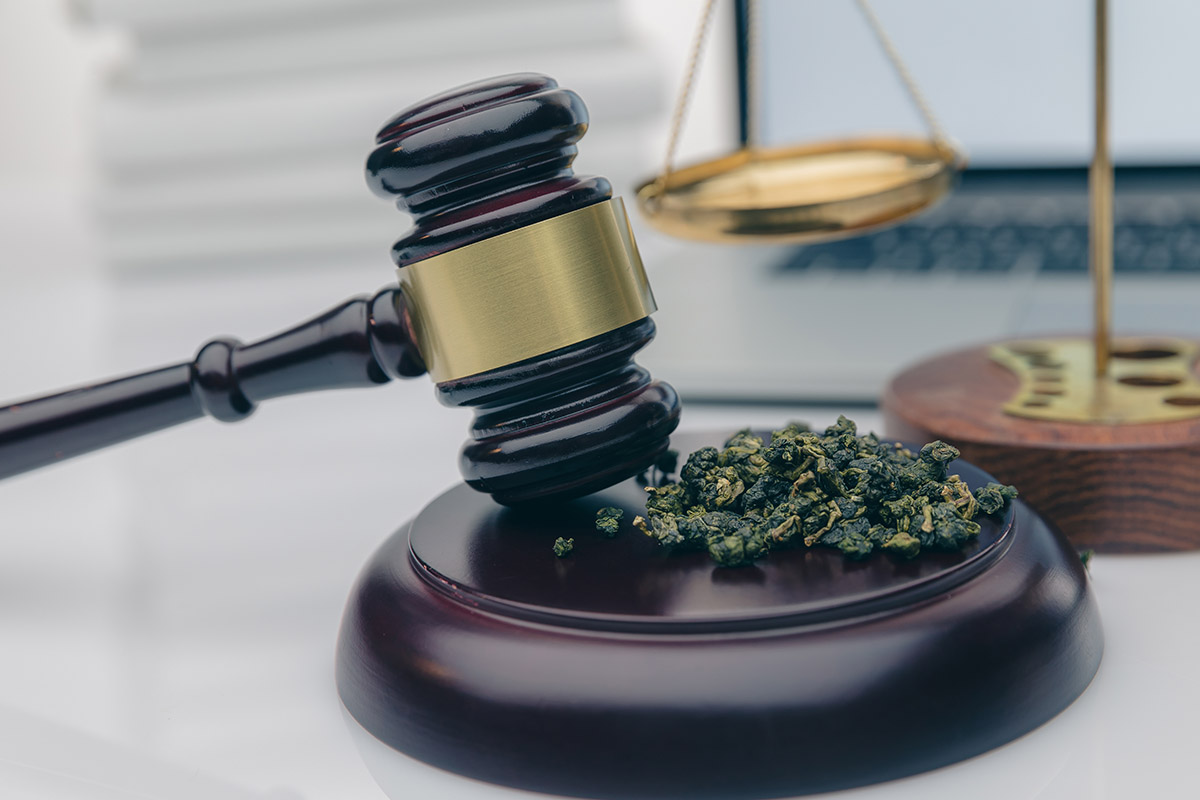As state legislatures and the federal government debate changes to cannabis scheduling and legality, Delta-8 THC—the intriguing, less intoxicating cousin of the infamous Delta-9 THC— often emerges as a topic of interest.
Delta-9 THC needs no introduction. It’s the psychoactive component of cannabis sativa. It’s where the “high” from marijuana originates.
Delta-8 presents an altogether different narrative. This substance is also a derivative of the hemp plant, and not marijuana. However, high enough doses of Delta-8 can have a similar or equal effect to traditional marijuana. The rising popularity of CBC & CBD products has stirred both public curiosity and legislative scrutiny. Let’s get into it.
Quick Overview of Cannabinoids
CBDs, CBNs, CBGs, and CBCs. What’s the Difference?
Before we get started, let’s remove the confusion about the various types of cannabinoids and cannabis components.
CBD, CBN, CBC, and CBG are all compounds found in the cannabis plant, but they each have unique properties and origins. Here’s a straightforward rundown to help you understand the differences:
While these compounds all come from the cannabis plant, they have different effects and origins. CBD and CBC are known for their non-psychoactive effects, while Delta-9 and Delta-8 THC are known for their psychoactive properties. CBN is unique in that it’s mainly a byproduct of THC decomposition. CBG is the precursor from which many other cannabinoids are formed.
Still Confused?
KSAT in San Antonio conducted informative reporting on the substance. See the video below.
Legality: What Does The Law Say?
Federal Law vs. Texas Law
If you’re looking into the legality Delta-8 THC, you’ll find conflicting regulations.
Federal law, specifically the 2018 Farm Bill, gave the green light for cannabinoids derived from hemp plants, implicitly including Delta-8 THC as long as the substance contains less than 0.3% Delta-9 THC. However, the states can implement stricter laws, and Texas is no exception.
The Constitution of the United States: Federal Precedence
Under the Supremacy Clause of the Constitution of the United States, federal law trumps state law in cases of discordance. Yet, the 10th Amendment reserves non-enumerated powers to the states, creating a jurisdictional puzzle that can complicate matters related to cannabis regulation.
The Compassionate Use Act
The Compassionate Use Act, regulated under Texas Occupations Code Chapter 169 and Texas Health and Safety Code Chapter 487, only sanctions the medical use of low-THC cannabis with Delta-9 THC levels not exceeding 0.5%. The law remains ambiguous on Delta-8 – but it is legal while marijuana is not.
Is the Delta-8 THC Variant a Controlled Substance in Texas?
As of now, it’s not listed in the Texas Controlled Substances Act. While the Compassionate Use Act opens the door for medical low-THC cannabis, Senate Bill 247 seems to close it for Delta-8 if it has a THC content of over 1%.
If you’re facing criminal charges and don’t feel you’ve committed a crime, Texas Constitution Article 1, Section 19 guarantees due process. This basically means that you have the right to be clearly informed on what constitutes illegal conduct.
Inconsistencies in Criminal Codes
The Texas Codes of Criminal Procedure stipulates the protocols for prosecuting controlled substances. With Delta-8 THC not explicitly detailed in these codes, questions persist on how (or if) District Attorneys might prosecute criminal cases related to the substance.
The good news is that these type of inconsistencies create the potential for successful legal challenges. When statutes are unclear, they often fail the test of Constitutional legality under both state and federal law.
Delta-8 THC & Drug Offenses
The prosecution of drug offenses related to the Delta-8 THC variant could invite scrutiny under both state & federal law due to the vague nature of the law.
In court, we could argue that the law is not sufficiently clear to inform ordinary citizens of the prohibited conduct. Therefore, the case should be dismissed.
Tad Nelson & Associates
Legal Representation That’s Built For Winning
Here at Tad Nelson & Associates, we pride ourselves on our exhaustive comprehension of drug laws at both the state and federal levels.
Attorney Tad Nelson is Board Certified® by the Texas Board of Legal Specialization™ in Criminal Law. His extensive experience in criminal law, complemented by the tenacity and finesse of Attorney Amber Spurlock, endows our law firm with a caliber of expertise that few can rival.
If we’re defending a person from charges related to readily available and legally sold CBD oils and other cannabinoid-related products, we know how to posture our defense strategy.
Defending You
Our first objective would be to scrutinize the details of each related legal statute with the goal of locking-in on constitutional conflicts that could serve as cornerstones to an effective defense strategy.
If you or a loved one were arrested in relation to any controlled substances in Galveston & the Greater Houston area, we’re ready to hear about the situation. Without question, we’re always ready to defend your constitutional rights with an unyielding resolve.
For questions, to schedule your free consultation, or to secure legal representation, do not hesitate to call us at 713-802-1631 or by using our message form.















